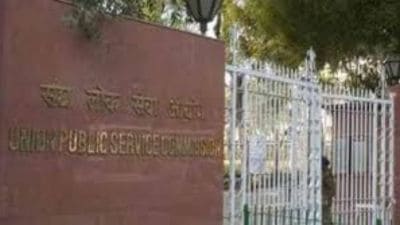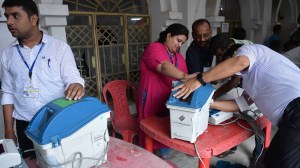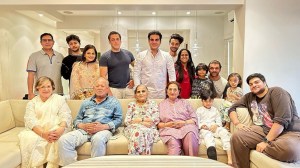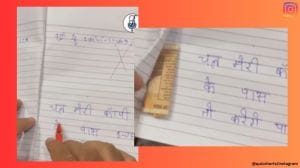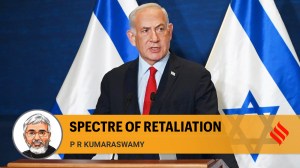- India
- International
Narendra Modi mentioned wife in poll affidavit after SC order on full disclosure
This is the first time that Narendra Modi has publicly acknowledged the existence of his wife Jashodaben.
A day after Narendra Modi mentioned his wife Jashodaben for the first time in an election affidavit, the brother of the BJP’s prime ministerial candidate issued a statement, describing the marriage as “child marriage”.
The acknowledgement of his married status by Modi follows a Supreme Court judgment — and subsequent order by the Election Commission — in September 2013, making it mandatory for candidates to fill in their affidavits fully.
Modi has always left the column for information on marital status in his affidavits blank, marking the space with a short dash. This is the first time that he has publicly acknowledged the existence of his wife.
An Ahmedabad-based member of the Aam Aadmi Party (AAP), Nishant Verma, on Thursday asked the Election Commission to set aside Modi’s victory in the 2012 Gujarat assembly election and cancel his nomination for the Vadodara Lok Sabha seat for making it look “as if he got married in 2014”.
Sources in the poll panel, however, said in Delhi that no action could be taken against Modi on the grounds that he did not provide information about his marital status while filing his nomination for earlier elections.

“The new guidelines took effect from last year. We are not concerned with what happened before that,” a top EC official said. In Ahmedabad, Gujarat Chief Electoral Officer Anita Karwal said the EC did not have the jurisdiction to cancel an election result.
In his statement issued on Thursday, Modi’s elder brother Somabhai Modi explained the circumstances of Modi’s wedding to Jashodaben, and “appealed with folded hands to all Indians on behalf of the family not to weigh Shri Narendrabhai Modi’s current position and reputation vis-à-vis events that happened in his childhood, almost 45-50 years ago”.
Somabhai, 71, said that “this marriage, in his (Modi’s) childhood, to Jashodaben Chimanbhai Modi, was a formal ritual because Narendrabhai had already left home then”.
The four brothers and sister belonged to a “poor, conservative family with illiterate parents”, Somabhai said, adding that Modi was “different from the rest of the siblings”. “He was greatly inspired by the sacrifices of Swami Vivekananda and Buddha,” Somabhai said.
Their parents, however, did not understand that Modi was different from the rest of the children, and got him married at a young age, Somabhai said. “Jashodaben too had moved to her parents’ home and dedicated her life to the field of education,” the letter, written in Hindi, said.
Reached for a comment on Thursday, Somabhai told The Indian Express with folded hands, “I have said what I have said”.
Even though the statement was released by the Gujarat BJP, the state president of the party, Ranchoddas Faldu denied knowledge of its contents. “I have been campaigning in Talaja. I am not aware of the details,” he said.
In guidelines issued on September 30, 2013, the Election Commission made it mandatory for candidates to fill all columns in their affidavits. In case information was not available, candidates are required to write ‘No’ or ‘Not Applicable’. Candidates must also submit a signed checklist, stating that all columns in the affidavit in Form 26 have been filled.
In case a candidate leaves a column blank, it is incumbent upon the returning officer to bring it to his/her notice, and ask for an amended affidavit.
“If a candidate fails to fill in the blanks even after the reminder by the returning officer, the nomination paper is fit to be rejected,” the EC guidelines said.
The guidelines were issued after the Supreme Court ruled on September 13, 2013, that “The voter has the elementary right to know full particulars of a candidate… It is held that right to know about the candidate is a natural right flowing from the concept of democracy and is an integral part of Article 19(1) (a) of the Constitution.”
The court added, “…The returning officer can very well compel a candidate to furnish the relevant information. Filing of affidavit with blank particulars will render the affidavit nugatory… If a candidate fails to fill the blanks even after the reminder by the returning officer, the nomination paper is fit to be rejected.”
Apr 16: Latest News
- 01
- 02
- 03
- 04
- 05


